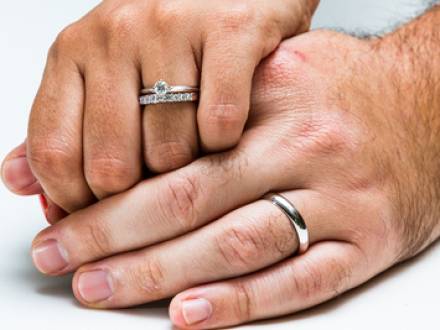Can You Keep Your Engagement and Wedding Ring in a WI Divorce?
 Most women remember every detail surrounding their engagement ring because it often coincides with being asked to marry the person they fell in love with. Although both parties may choose wedding rings together, both the engagement and wedding rings are technically given to the other spouse before they are officially and legally married.
Most women remember every detail surrounding their engagement ring because it often coincides with being asked to marry the person they fell in love with. Although both parties may choose wedding rings together, both the engagement and wedding rings are technically given to the other spouse before they are officially and legally married.
While it might seem that this renders engagement and wedding rings separate property, this assumption is not always upheld when a dispute arises. Like a handful of other states, Wisconsin is a community property state. This means that all marital assets are split 50/50, regardless of any extenuating circumstances. Most states in the United States have gone to equitable distribution, meaning marital assets are split fairly, although not necessarily equally.
Before allocating marital assets, determining which assets are separate and which are marital must occur. Many different factors are involved in splitting marital assets, including engagement and wedding rings. Having an experienced Menomonee Falls, WI divorce attorney from Bucher, Wolff & Sonderhouse, LLP by your side can make these issues much easier, causing you far less stress.
How is Marital or Separate Property Determined?
In general, separate property is any property owned by one spouse before the marriage or given as a gift or inheritance before or after the marriage. While this sounds fairly straightforward, separate property can easily – and unintentionally – turn into marital property through commingling. Suppose one spouse owned a beach house before the marriage, which was left to him or her by Great Aunt June.
The beach house is that spouse's separate property unless he or she puts the other spouse’s name on the title, the other spouse materially contributes to the value of the house through work or money, or marital funds are used to improve the house or pay property taxes. In any of these situations, the beach house may be considered at least partially marital property, subject to division during a divorce.
Are Engagement Rings and Wedding Rings Marital Property?
The engagement ring is generally considered marital property during the marriage. However, if the couple is only married for a short amount of time, the receiving party can argue that the ring was a gift prior to the marriage and is a premarital asset. In some cases, the engagement ring is permanently attached to the wedding ring, making it more likely that both rings will be considered marital property.
If the wedding is called off, the engagement ring is considered a conditional gift and should be returned to the person who purchased it. Since the parties are not married, this is a civil law matter rather than a marital distribution matter. A wedding ring is usually considered marital property, belonging to both parties. If one party wants to keep his or her wedding ring, then that person may have to give up another marital asset of similar value.
What Should You Do with an Engagement or Wedding Ring After the Divorce?
Engagement and wedding rings are steeped in tradition. A spouse awarded the wedding or engagement rings may want to keep them for sentimental reasons or because they are worth significant money. Others may want to pass the rings on to a child or another loved one.
Additional options include repurposing the gems in the ring to make a necklace, earrings, or another type of ring, burying the ring with a ceremonial "goodbye" to the marriage, donating the ring to charity, giving the ring back if it was a family heirloom, or selling the ring and using the cash for something else.
Contact a Waukesha County, WI Division of Assets Lawyer
Division of engagement and wedding rings can be fraught with emotion during a divorce. An experienced Waukesha, WI division of assets attorney handling your divorce can give you peace of mind, knowing that your divorce is professionally handled. We will help you achieve stability and confidently move forward in your life. Contact Bucher, Wolff & Sonderhouse, LLP by calling 262-232-6699 to schedule your free consultation with a compassionate family law attorney.









 262-232-6699
262-232-6699





